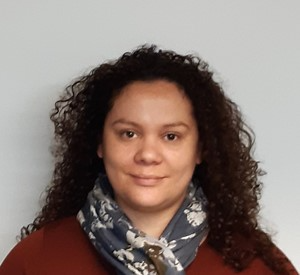
Pinja Hirvilammi: How to approach influencer marketing for fundraising
March 10, 2021
Patrick Gibbels: New EU Anti Money Laundering proposal on its way
April 7, 2021Leadership is never easy and the past year will surely have put every leader to the test. Against the backdrop of a global pandemic, organisations have had to charter the unknown, unsure how long the situation will last or what lies ahead. Fundraising Europe explores how nonprofits are approaching leadership in this new normal.
Little over one year ago, few of us could have predicted how life would change. In a matter of weeks, many of the busiest high streets, roads and schools would lie empty as entire populations adapted to a socially-distanced world. Nonprofits had to make swift transitions to a remote workforce, more widespread use of digital technology, new fundraising channels and – in many cases – rising demand for services.
12 months on and life may be changing for many once more, but the environment is no less challenging for nonprofit leaders, many of whom are also dealing with sizeable budget cuts and reduced staff capacity. When you consider that everyone – staff, trustees and volunteers through to beneficiaries and supporters – is having to cope with significant changes to their daily lives, health, and finances, this can require considerable leadership skills. Some employees may have spent months living in isolation while others juggle their workload with childcare and home school.
While there’s no singular strategy for successful or inspirational leadership, this feature looks at some of the principles and approaches leaders are taking to guide their teams through times of change.
Compassion and empathy take centre stage
Far from the traditional hierarchical approach to leadership, today’s nonprofit leaders underline the need for a culture of compassion and empathy. The pandemic has been with us for many months and there is an overwhelming sense of the importance of treating one another with kindness, and of nurturing employee relationships.
Eduard Marček, chair of the Slovak Fundraising Centre and EFA president, says:
“Strong leadership means a deep understanding of people and their needs. Now more so than ever – with the pandemic impacting people in so many different ways – we need to have great empathy and sensitivity.

Davinia Batley, Become
“Without being able to see each other in person, we have to work even harder to interpret what may be happening behind the scenes, what support is needed now and how that might change along the way.”
Speaking at a recent Bright Spot Breakfast Club for Fundraising Leaders, Davinia Batley, director of fundraising and engagement at Become – a UK-based charity for children in care and young care leavers, highlighted the importance of self-reflection. Of taking the time to recognise the challenges of the situation and of making a conscious decision as to the kind of leader she needed and wanted to be.
When the pandemic struck, Batley identified several principles that would guide her approach. They included a commitment to being transparent and open with all those around her, sharing how she was feeling with her team – even when that meant conveying vulnerability – and ensuring that kindness was baked into everything they did.
Wellbeing and self-care are vital
With mental health concerns at an all-time high, leaders emphasise the importance of wellbeing, of listening to employees, encouraging them to discuss their circumstances and to help find new ways of working.

Peter Lewis, Chartered Institute of Fundraising
“Wellbeing is a huge issue,” says Peter Lewis, chief executive of the Chartered Institute of Fundraising in the UK. “Across the sector, we’re having to ask people to do more, to take risks and to do things in different ways when everyone’s lives have been turned upside down. It’s so important to take the time to listen, so that we know what support is needed and how we can enable people to do their best.
“A lot of interaction happens naturally in an office environment. Without seeing each other regularly we’re having to find a new path and that means finding a balance between scheduled meetings and softer catch-ups (with no agenda), while also making sure everyone can take time out and get away from their screens.”
Marček agrees, adding: “It’s unrealistic to be able to expect everyone to perform as they used to. But we can’t forget that the same applies to leaders of course. Self-care is critical. You can’t lead others and encourage them to take care of themselves without modelling the same principles. Leaders must start by leading themselves.”
Openness, transparency and clarity
To lead teams through unchartered territory, trust is vital. The pandemic has seeded a new level of openness and informality in the way many leaders are communicating with their teams. Offering a glimpse into their personal lives on video calls and opening up about their own challenges, this new level of transparency can help to deepen trust and strengthen relationship-building.

Sara Turetta, Save The Dogs
Sara Turetta, founder of Save The Dogs and other animals (headquartered in Italy), stresses the importance of trust within her team and in creating a new culture of resilience and flexibility. She says:
“Our team has always been deeply committed to the animals we support and most of our staff have been with us for many years, but working together and supporting each other through such a tough time, has actually strengthened our bond. We can’t always meet in person, but we value the time we spend together even more.
“This experience has taught us not to fear change. If you have a strong, trusted team and leadership, it’s so much easier to be flexible and adapt; everyone moves together. We’ve built up that trust over the years, so we have never felt that we needed to check up on what each other was doing. I’m sure that has made it a great deal easier.”
The same openness is following through into organisations’ fundraising and wider communication strategies as nonprofits share honest updates with donors and funders about the impact of the pandemic on their work, what it means for beneficiaries, their funding challenges and how the situation is changing.
Batley added: “As the crisis unfolded, we chose to talk to our donors as much as possible, recognising that it was okay (indeed essential) to be clear that we didn’t yet have answers to all the challenges they were facing.”
This candid approach has been extremely well received by the charity’s supporters and funders alike, leading to two particularly large trust donations.
Being open to risk and failure
In such a fast-changing world, nonprofits have to be agile, pivoting to embrace new opportunities and to find new ways to meet the needs of beneficiaries. Leaders emphasise the importance of developing a culture that allows people to take risks; a culture where employees are empowered to make their own decisions and to learn as much from what goes wrong as what goes right.
Lewis says: “Leaders are having to give their teams certainty, while dealing with huge amounts of ambiguity, and that’s incredibly difficult. We have to be willing to take on a new level of risk, so that we can respond quickly and in agile ways.”
From the outset of the pandemic, Batley trusted her team to be decision-makers, giving them the freedom to test, learn and grow, saying: “It was important that everyone in the team understood that they had permission to not do, what didn’t need to be done. It helped them get to the crux of what was needed really quickly.”
Emphasising that failure has a key role to play in freeing up people’s decision-making and enabling the organisation to be more agile, she describes failure as a ‘gift’, adding: “It’s from failure that you can learn. And learning is what’s needed to move forward, especially during an unprecedented challenge like a global pandemic.”
Recognising the challenge of leading at a distance
Leadership can involve managing a broad array of personalities, responsibilities and practical tasks simultaneously. Particularly when working through a crisis situation and distanced from colleagues, this can take its toll.

Jan Kroupa, Czech Fundraising Center
“Being separate from colleagues and peers can make it all the more challenging for leaders to remain focused and energised,” highlights Jan Kroupa, co-founder at the Czech Fundraising Center.
He cites the importance of recognising how difficult it can be to navigate times of change, particularly when so much interaction is limited to the virtual world, saying: “What seems to be among the most difficult leadership tasks to be accomplished online is to continually rejuvenate and re-energise oneself. Many practical things can be agreed and organised across the team quite easily, some perhaps even more efficiently, but many find it hard to keep refuelling without being around other human beings.
“To state it very simply: it is hard to dream alone. And after all, that is the business that leaders in the philanthropic sector are in: translating dreams and visions into practical reality.”
In this context, peer-to-peer networks, events, mentoring, training and other team building strategies can be a crucial lifeline. (See EFA’s events calendar for forthcoming events across Europe, including the new European Leadership Development Webinar series developed to support those in Central and Eastern Europe, Germany, Austria and Switzerland.)
Looking up to check the horizon
Leaders are having to stop and review their approach as the situation evolves. While nonprofits have navigated through an evolving crisis situation for many months, at some stage it will be time to shift to a new phase – potentially one of recovery – and this will likely require new leadership skills and strategies. Taking the time to re-assess the overarching direction of travel, considering how priorities might change and what this means for employees will be vital.
Lewis adds: “We’ve come through the most extraordinary 12 months and the next 12 may be just as challenging in different ways. But – as human beings – we can’t function in a perpetual period of emergency. As lockdown eases, the world will change again and people will respond in different ways. While we’ve all had some time to become more adept leading through change, there is a danger that people will think that what has worked during the crisis will work in a more stable period, when the skill set can be very different.
“When a building is on fire, your mission is to get people out as quickly as possible. But if you need to serve a communal meal in that building, this will take a totally different style of leadership. We will all need to find a new way forward and that means leaning into wellbeing, leaning into listening to all those around us, and not being afraid to take risks and shift gear once more.”
Strong leadership stems from influence, rather than authority or power. What’s clear from the leaders we have spoken with is that the pandemic and whatever comes next is a learning journey and that is as much the case for leaders as it is their teams.
Kroupa concludes: “In many ways, the pandemic has given us a huge opportunity to advance leadership in the philanthropy sector. All we need is to get our heads around how different this might be, what this means for our people, our services and our ability to achieve our mission. In other words, the current leadership challenge is not only to find the power to dream, but to find the power to dream a new dream.”
Useful links
Leadership development training – Find out more about the European Leadership Development Webinar series here or see EFA’s events calendar for a full list of forthcoming events and training opportunities across Europe.
Wellbeing resources – The Chartered Institute of Fundraising has developed a suite of free wellbeing resources for fundraising organisations, which can be downloaded here.
Interview with Davinia Batley – Hear more from Davinia Batley of Become, in this write-up from Rob Woods at Bright Spot Fundraising.
Sara Turetta’s Autobiography – Read more about Sara Turetta’s personal journey, having dedicated her life to rescuing stray dogs and founding Save The Dogs and other animals almost 20 years ago in her autobiography (Italian) I cani, la mia vita (Dogs, My Life).
Main image (top): Photo by Mariah Hewines on Unsplash




